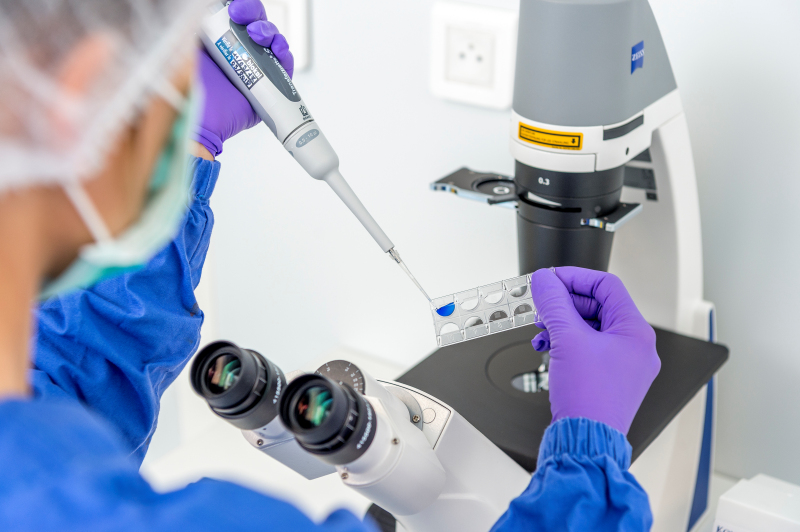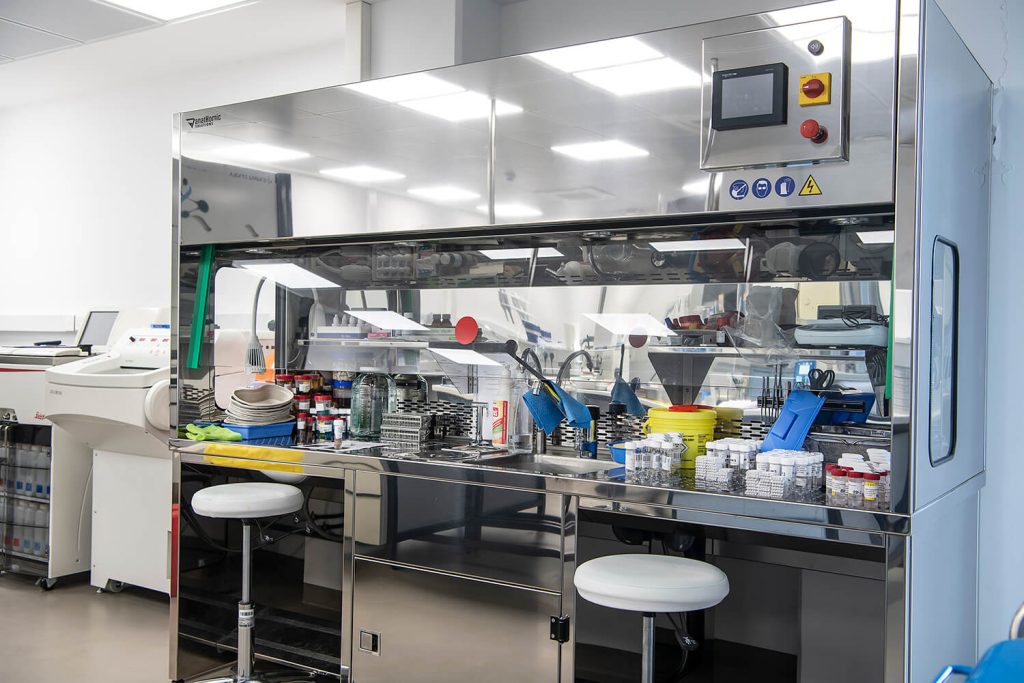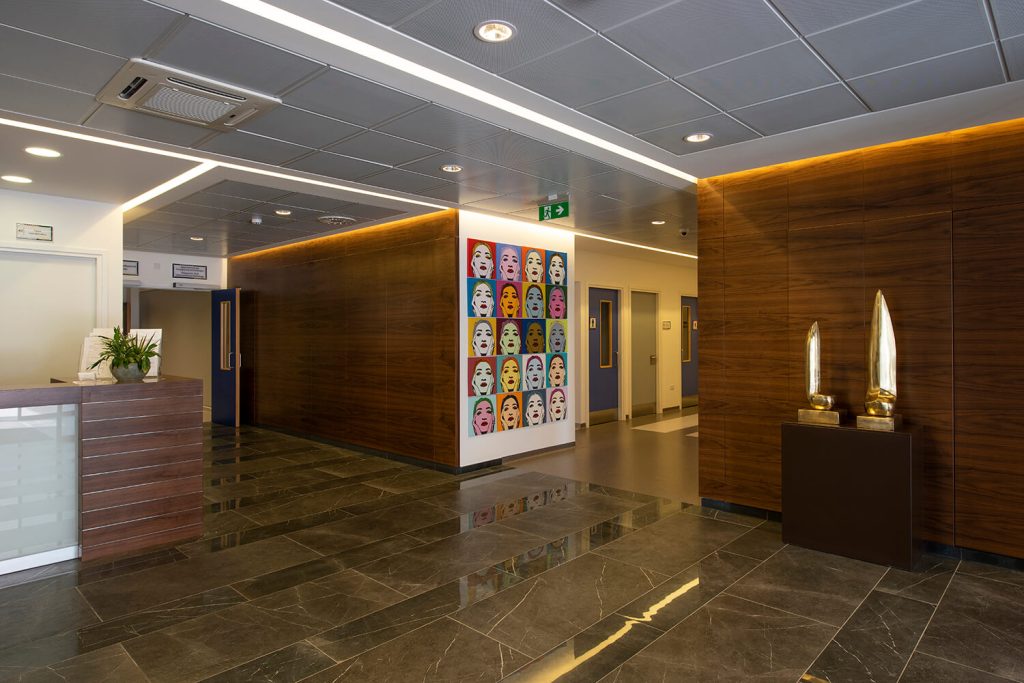Infectious Diseases
About
The Department of Infectious Diseases at the German Medical Institute (GMI) is the first stand-alone department of its kind in Cyprus. We provide high quality services related to the prevention, diagnosis, and treatment of infectious diseases both to oncological or other immunocompromised patients and to the general population.
Additionally, our department is actively involved in developing guidelines for the optimal treatment of infections, as well as preparing research studies in collaboration with European and international networks of infectious diseases departments and clinics. Simultaneously, in line with the framework of educational activities taking place at the GMI, the Department of Infectious Diseases trains staff on topics related to our field.
Welcome to the Department of Infectious Diseases.
Nikolaos Spernovasilis

Department
Our department is staffed by experts who have extensive experience from hospitals in Greece and abroad on the prevention, diagnosis, and treatment of infections in oncology patients as well as in the general population.
We constantly update the methods and strategies we use to treat infection based on the latest international protocols.
We collaborate with the Departments of Microbiology and Radiology, as well as with the Department of Nuclear Medicine. They are all equipped with state-of-the-art technology, contributing to the diagnosis and follow-up of infections.
We regularly conduct research in the field of Infectious Diseases in Cyprus, Greece and abroad, to provide our patients with the most innovative options for the diagnosis and treatment of difficult or rare infectious diseases.
We are an active member of European and international societies and organizations of Infectious Diseases, and strive to provide reliable advice for the diagnosis and treatment of challenging infections, which usually require a multilevel multidisciplinary approach from a variety of medical specialties.

Our Team
The Director of our Department is Dr. Nikolaos Spernovassilis, BSc, MD, MPH, PhD
Pathologist - Infectious Diseases.
The Head of our Department is Mrs. Maria Moustaki, RN, MSc
Infection Control Nurse.

Research
Our team members are active members of Cypriot, Greek, European and international scientific societies and organizations of Infectious Diseases and Infection Surveillance, holding various positions of responsibility in many of these scientific organizations. They actively participate in writing and publishing research studies in international medical journals and presenting these studies in national and international conferences. The Department is also active in pushing for such conferences to take place in Cyprus contributing to the development of medical knowledge and research in the country.
Medical Staff
FAQs
It is the presence of a microorganism in the body that attacks the tissues in that area, causing organ dysfunction. This dysfunction can cause symptoms (hence disease) or be asymptomatic.
Colonization is the presence of a microorganism in the body without affecting the body tissues in that area, nor causing organ dysfunction. In most cases colonization does not require antimicrobial treatment.
The human microbiome is the set of genetic material of microbes living in the human body. Most commonly, this term is used to refer to all the microbes present in the human body, but it is rendered slightly differently in English (human microbiota).
The microbiome consists mainly of microorganisms of the gastrointestinal tract, respiratory system, genital tract, and skin. The predominant components of the microbiome are various types of bacteria, followed by fungi, viruses (which are not considered microorganisms in the strict sense of the term) and parasites. Many of these microorganisms live symbiotically with humans, performing critical functions, such as the body’s defense, various metabolic processes, etc. The microbiome is therefore considered to be an additional organ.
Any disturbance of the normal structure, composition and function of the human microbiome can cause issues with how the body functions overall. In fact, there has been an enormous interest in recent years in research on permanent or prolonged disturbances of the microbiome and their association with serious diseases such as chronic neurological diseases and various forms of cancer.
Antimicrobials are natural or artificially synthesized substances used to fight infections by either killing microorganisms or inhibiting their proliferation to give the human body time to eliminate them. They fall into the following four broad categories: antibacterials, antifungals, antivirals and antiparasitics.
All approved antimicrobials are considered safe. However, side effects cannot be ignored, and vary greatly depending on the type of antimicrobial and the health status of the person taking it, including any possible comorbidities they may have. Many of these side effects cannot be predicted in advance. Furthermore, there are specific criteria for each antimicrobial based on the patient’s medical history and underlying conditions
The correct use of antimicrobials has revolutionized medicine and in nearly a century of administering them to humans, they have saved billions of lives. It is, however, their overuse or misuse that creates major problems. On one hand, they kill microorganisms that are vital components of our natural microbiome, dramatically disrupting its function. On the other hand, the frequent use of antimicrobials makes the microorganisms they combat resistant to them, rendering them useless. The result is the creation of multidrug resistant strains of microorganisms, which are easily transmitted between people, especially in healthcare facilities (hospitals, nursing homes, welfare facilities, etc.). Cyprus and Greece, as well as other Mediterranean countries are considered global incubators of multidrug resistant microorganisms, mainly due to the indiscriminate use of antimicrobials, but also due to inadequate (or non-implemented) infection prevention and control measures.

Contact details
- (+357) 25 208 000
- [email protected]
- 1, Nikis Avenue 4108, Agios Athanasios, Cyprus
- Mon - Fri | 08:00 - 16:30



